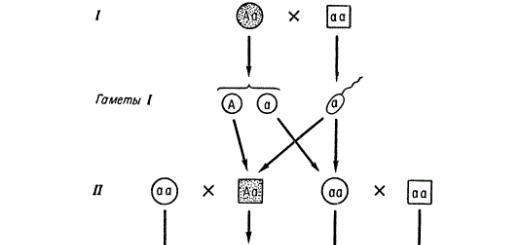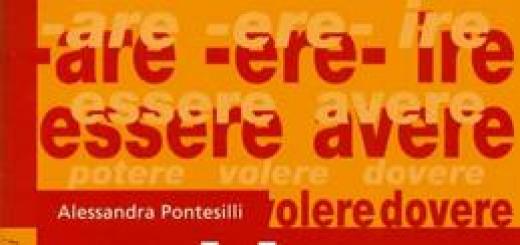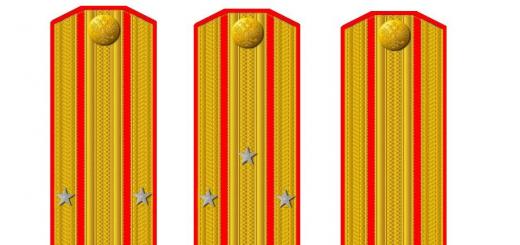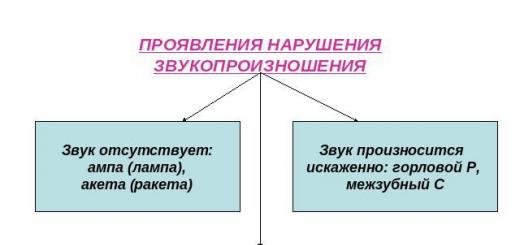Rules of Russian spelling and punctuation. Complete academic reference book Lopatin Vladimir Vladimirovich
Unstressed vowels in case endings
§ 67. In accordance with the general rule (see § 33), the writing of letters in place of unstressed vowels in endings is established by checking the forms of words with the same ending (of the same type of declension), in which the vowel being checked is under stress, for example:
o?zero, knee?but, over?field, towel (window?, chisel?, face?, gun),
cha?shi, ko?ni (tables?, tree stumps);
book, about the book (hand?, about the hand?);
chair, lake, stone (table?, window?, stump);
home, field, hundred, glue (table, window, knife, edge);
about the teacher, about the guard, about the dress, in the field (about the horse?, about the knife?, about the linen?, in the window?);
but?chi, horses, joy (indirect cases singular h.; Wed love?, wilderness?);
readers, joys (teacher, horse);
servants, songs, o?knam (cities, teachers, seas);
red, blue, red (young, big and mine, myself?);
si?nim (big?m);
eleven (five?, twenty?);
ninety (one hundred?);
nine?one hundred(indirect cases; cf. hundred?).
Note. Letter And written at the end of TV forms. p.m. including nouns and adjectives and TV. n. numerals - in endings ?ami (?yami), ?s (?by them): tables, sisters, nights; big, strong; three hundred etc. The final vowel of these endings, always unstressed, can be verified by comparison with the stressed ending tv. n. plural ?mi in forms children?, people? and in form options doors?, daughters?, horses?(cf. doors, daughters, horses).
§ 68. In the form named after p.un. h. husband of the gender of adjectives (as well as all other words inflected as adjectives) the ending is written without stress ?th(after soft paired consonants and sibilants - ?th), although the stressed ending is ?Ouch.
Wed, for example: angry, young, big, But full, vigorous, blue, strong, good, fresh; Wed options such as portable And figurative, delusional And delusional; Wed big And bigger, sea And Primorskiy, river And dawn.
§ 69. The following endings contain vowels that are not tested by stressed position.
The final vowel of im endings is always unstressed. n. adjectives for women sort of ?and I (?yaya): red, big, blue; environment, kind ?oe (?her): red, big, blue; pl. numbers ?s (?ie): red, big, blue.
Nouns on ?anine (?Janin), as well as words master, boyar, gypsy in them p.m. h. have an unstressed ending ?e: peasants, townspeople, citizens, Romans, Armenians, boyars, bar(along with the option bars), gypsies(but cf. form gypsies in Pushkin).
In them. and wine endings for numerals are written: ?And in the word two hundred; ?A in words three hundred and four hundred; ?O (?e) in collective numbers, for example: four, six, two, three. At the end of TV n. of the numeral three the letter is written e: three.
§ 70. Nouns with some suffixes have features in the writing of unstressed endings.
Nouns with an augmentative suffix ?searching- husband. or medium genders end in them. p.un. hours on ?e, eg: house, wolf, cat, writing, veslishche. Feminine nouns genders with the same suffix end in im. p.un. hours on ?A, eg: cows, hands, dirt. Words on ?search husband. kind in them p.m. h. end in ?and: wolfs, houses, eyes.
Note. Words of Wednesdays, kind on ?search- both with magnifying and other meanings - have in them. p.m. h. ending ?a: letters, shoulders. Wed. conflagration, hatchet(masculine) - magnifying to fire, ax- them. p.m. h. conflagrations, axes; But conflagration(Wednesday, gender) ‘the place where there was a fire’, ax handle(Wednesday, gender) ‘axe handle’ - conflagrations, axes. For words with an augmentative suffix ?searching- having only plural forms. h., in them. p. - the same ending as in im. n. of the producing word, for example: money - money, gate - gate.
Nouns with suffix ?ishk- end in them. p.un. hours on ?A or ?O: in the words of the husband. kind of animate and in the words of women. kind - ending ?A, in the words of the husband. kind of inanimate and in words of environments, kind - ending ?O. Wed, for example: brother, boy, little man, kitty, service, little thought and little house, little town, little factory, little coat, little dress, little boy. Nouns with a caressing (unstressed) suffix have the same endings ?ushk- (?yushk-): Wed., e.g. uncle, father-in-law, neighbor, nightingale, widow, nanny, little girl And bread, child, polelyushko, goryushko.
In words of environment, gender with a suffix ?yshk- in them p.un. h. - ending ?O, eg: feather, neck; in the word wives sort of pancake- ending ?A.
In nouns with suffix ?l- in them p.un. h. - ending ?A or ?O: common nouns or husband. gender - names of persons ending in ?A, inanimate nouns of the environment, gender - on ?O. Wed, for example: sang, started, crammed, smashed, bounced, cheated, pestered And blower, sharpener, measure, wandered, scarecrow.
Note. In proper names like Gavrila, Danila, Kirila, Mikhaila, Samoila the ending is written ?A. But cf. traditional spelling Mikhailo Lomonosov, as well as obsolete spellings like Gavrilo, Danilo, preserved in some texts of writers of the 19th century.
§ 71. Case forms of nouns na?ii, ?ie, ?iya.
1. Nouns with a non-monosyllabic stem (male). and Wednesdays, kind of on ?th And ?ie in sentence n. and women sort of on ?and I in date and sentence p.un. h. have an unstressed position, in deviation from the general rule, ending ?And, but not ?e, eg: genius - about genius, sodium - about sodium, radium - about radium, Vasily - about Vasily, Yuri - about Yuri, separation - in separation, return - upon return, assistance - with assistance; army - to the army, about the army; line - along the line, on the line; station - to the station, at the station; Bulgaria - in Bulgaria, in Bulgaria; Maria - to Maria, about Maria.
If there are options for ?ie And ?ie, ?ia And ?ya the indicated case forms have different endings - ?e: cf., e.g., variant pairs like about skill - about skill, in bloom - in bloom, about verbosity - about verbosity, about Natalia - about Natalya, to Maria - to Marya.
Note. In artistic, especially poetic, speech it is allowed to write sentence forms. n. nouns, gender ?ye(usually with the preposition V) with ending ?And, eg: You walked alone in silence with a great thought(P.); There is feat in battle, / There is feat in struggle. / The highest feat is in patience, / In love and prayer(Hom.); And the snow competed in zeal / With twilight death(B. Past.); "Enchanted"(title of the poem by I. Severyanin); Birds scream in the sky, / The heart beats in the hypochondrium(V. Valley). The end of the sentence is stressed. P. ?And marked only for one word per ?ye: oblivion - in oblivion?.
2. Few nouns on ?ii, ?ii with a monosyllabic base have the ending in the indicated cases in an unstressed position as a general rule ?e. List of such words: serpent - about the serpent, cue - about ki?e(option: about which ones?), Cue(legendary founder of Kyiv) - about Kie, Chiy(plant) - about whom, “Viy” - in “Bue”, Pius - about Pius, under Pope Pius; hria(rhetoric term) - according to hria, about hria; Biya(river) - along Biya, on Biya; Iya, Liya, Viya(female names) - to Ie, about Leah, about Vie; Gia(male name) - to Gia, oh Gia.
Note to paragraphs. 1 and 2. Few nouns have ?ie, ?ie, having an accent on the ending, the indicated case forms end in And on either e , eg: judge? - to the judge?, about the judge?, lithium? - in lithium?, litany? - in litany?, being? - about being?, life? - about life?, in life?, But: edge - on the edge?, about the edge?, Ziya?, Aliya?, Zulfiya?(personal names) - about Ziya?, about Aliya?, to Zulfiya?, Kyzyl-Kiya?(city) - in Kyzyl-Kiya?.
§ 72. Stable combinations of prepositions in, on, by with nouns on ?ie in sentence p., close in their role in a sentence to prepositions, end (according to the rule of § 71, paragraph 1) with ?ii. Written: in a relationship someone, something in anticipation something, in anticipation something, accompanied someone, something according with something in agreement with someone or something, compared or in comparison with someone or something. (‘compared’; but: doesn't compare); based something, for something; after the lapse of something The adverb is also written subsequently.
They must be distinguished from stable combinations of prepositions V (in) And on with nouns on ?ie in wine items that have become prepositions or close to prepositions; such combinations end in ?ie. Written: Finally something (And Finally‘at the end, finishing’), in conclusion something, in violation something, in contrast from someone or something in continuation something, during something, to avoid something, in change something, in pursuance something and (together) due to something, like something
Combinations close to prepositions differ in spelling in the absence of someone (‘in the absence’) and in the presence someone
Similar stable combinations with the letter e at the end (including the form of a v. p.) should be distinguished (in meaning) from free combinations with a sentence. Wed., e.g.: in continuation, But: notice an error in the continuation of the story; Finally, But: find a contradiction in the commission’s conclusion; in the absence of, But: see a crime in the absence of a student at a lecture.
§ 73. Russian (and modeled after Russian) surnames ?in (?yn) and on ?ov (?ev) are on TV. p.un. h. ending ?ym(like adjectives), e.g.: Prishvin - Prishvin, Lisitsyn - Lisitsyn, Orlov - Orlov, Turgenev - Turgenev, Gazzaev - Gazzaev. Wed. under emphasis: Borodin - from Borodino.
Note. In foreign surnames ?in And ?ov on TV p.un. h. the ending is written ?ohm(like masculine nouns), for example: Darwin - Darwin, (Charlie) Chaplin - Chaplin, Gershwin - Gershwin, Virchow - Virchow.
Names of cities on ?ov (?ev) And ?in are on TV n. ending ?ohm, eg: the city of Lviv - the city of Lvov, Saratov - Saratov, Kanev - Kanev, Mogilev - Mogilev, Kamyshin - Kamyshin. Wed. under emphasis: Tulchino - near Tulchino. Thus, surnames and city names have different TV endings. P.: Pushkin(surname) - Pushkin And Pushkin(city) - Pushkin; Alexandrov(surname) - Alexandrov And Alexandrov(city) - Alexandrov.
In the names of settlements and territories on ?ovo (?evo) And ?foreign (?no) in TV forms. p. is also written ?ohm, eg: Kryukovo - near Kryukov, Odintsovo - Odintsovo, Golitsino - Golitsyn, the village of Maryino - the village of Maryin, Kosovo - Kosovo. Wed. under emphasis: Borodino? - near Borodino, Strogino? - Strogino?m.
From the book 100 great writers author Ivanov Gennady Viktorovich From the book Handbook of Spelling and Stylistics author Rosenthal Dietmar Elyashevich§ 1. Checked unstressed vowels Unstressed vowels of the root are checked by stress, i.e. in an unstressed syllable the same vowel is written as in the corresponding stressed syllable of the same root word, for example: try on (m?rit) a suit - reconcile (peace) neighbors; flutters
From the book Handbook of Spelling, Pronunciation, Literary Editing author Rosenthal Dietmar Elyashevich§ 2. Unverifiable unstressed vowels The spelling of unstressed vowels, which cannot be verified by stress, is determined by the spelling dictionary, for example: badminton, concrete, twine, can, bodyaga, briolin, validol, cheesecake, ventilation, vestibule, ham,
From the book Rules of Russian Spelling and Punctuation. Complete Academic Reference author Lopatin Vladimir VladimirovichVI. Vowels after sibilants and c in suffixes and endings § 35. Vowels o and e after sibilants 1. After sibilants, o is written under stress, in accordance with the pronunciation: a) at the endings of nouns, for example: dugout, turn (turn), listage, displacement, footage,
From the author's book§ 1. Checked unstressed vowels Unstressed vowels of the root are checked by stress, i.e. in an unstressed syllable the same vowel is written as in the corresponding stressed syllable of the same root word, for example: forests (les), fox (li?sy), try on (me ?rit) suit - reconcile (peace)
From the author's book§ 2. Unverifiable unstressed vowels The spelling of unstressed vowels that cannot be verified by stress is determined by a spelling dictionary, for example: badminton, concrete, twine, can, bodyaga, briolin, validol, cheesecake, ventilation, vestibule, ham,
From the author's book§ 3. Alternating vowels Alternating a and o1. At the root gar- - gor- under stress it is written a, without stress - o; tan?r, ug?r - tanned, angry.Exceptions: you?burn, and?tan, burnt (special and dialect words).2. At the root zar- - zor- the vowel in is written under stress
From the author's bookVI. VOWELS AFTER SISSINGS AND C IN SUFFIXES AND ENDINGS § 34. Vowels o and e after sibilants 1. After sibilants, under stress, o is written, in accordance with the pronunciation: a) at the endings of nouns, for example: dugout, turn (turn), leafage, displacement, footage,
From the author's book§ 35. Vowels after c 1. After c in endings and suffixes under stress it is written o, without stress e. For example: end?m - finger, merchant?v - merchants, coat? - dress, beret? vyy - chintz, ringed - ringed.2. After ц in endings and suffixes it is written ы (in
From the author's bookUnstressed vowels in roots § 34. In accordance with the general rule (see § 33), the writing of letters in place of unstressed vowels in roots is established by checking words and forms with the same root in which the vowel being tested is under stress, for example: water? (cf. waters,
From the author's bookUnstressed vowels in prefixes § 38. In accordance with the general rule (see § 33), the writing of letters in place of unstressed vowels in prefixes (except for the prefix raz-/roz-, see § 40) is established by checking words and forms with the same prefix , in which the vowel being tested
From the author's bookUnstressed vowels in suffixes § 42. In accordance with the general rule (see § 33), the writing of letters in place of unstressed vowels in suffixes is established by checking words and forms with the same suffix, in which the vowel being checked is under stress. Examples
From the author's bookUnstressed fluent vowels in the roots and suffixes of nouns and adjectives Introductory remarks. The correct spelling of a letter in place of an unstressed vowel is in some cases determined by the fluency of this vowel. The fluent vowel appears in many names
From the author's bookUnstressed connecting vowels § 65. When combining the stems of two or more words into one compound word, as well as when forming complex words with components of an international nature, a connecting vowel is used, expressed in writing with the letters o and
From the author's bookUnstressed vowels in verb forms Vowels in verb endings § 74. The writing of unstressed vowels in verb endings follows the general rule (see § 33): unstressed endings are checked by the corresponding stress. Application of this rule requires skill
From the author's bookUnstressed particles not and neither § 77. There are two particles different in meaning and use - not and nor. Wed. cases when they are stressed: He doesn't? was at school today. Whoever he is? was, you need to talk to him. But in most cases the particles are neither unimpacted nor in
What case endings do nouns have? You will find the answer to this question in the materials of the presented article. We will also tell you about the differences between case endings of different declension and give some examples.
General information
Knowing how words change by case is extremely important. After all, spelling case endings brings a lot of problems when creating a literate text. It should be noted that the choice of one or another letter in nouns depends entirely on which declension they belong to. By the way, there are errors in the spelling of endings -And or -e occur only in certain case forms: dative, genitive and prepositional cases. That is why it is recommended to remember them.
What is declination? Types of declinations
Nominal ones are declined according to the adjectival type, as well as the substantive and pronominal type. In this article we are only interested in the substantive declension. It is divided into three subtypes. Let's look at them in more detail:
- According to the 1st declension, nouns (in the singular) of the common (crybaby), masculine (dad) and feminine (mother) gender, which have the endings -я or -а in the nominative case, change.
- According to the 2nd declension, nouns (in the singular) of the masculine gender are changed, having (nail, house) or endings -e, -o (domishche, little house), as well as neuter nouns with endings -е, -е and -о ( field, spear, window) in the nominative case.
- The 3rd declension changes feminine nouns (singular) that end in a hissing or soft consonant (for example, pride, thought, branch). If such a word has a hissing consonant at the end, then its belonging to the 3rd declension should be indicated by a soft sign (for example, mouse, rye, stove, etc.).
Singular case endings for nouns
To write a letter correctly, for example, it is advisable to know all the possible endings of nouns of different declensions. To do this, you should decline the corresponding words by case.

Nouns of the 1st declension
- Nominative case (who? what?) - dad(a), iv(a), Kol(ya), Yul(ya).
- Genitive case (what? whom?) - dad(s), iv(s), Kol(s), Yul(s).
- Dative case (to what? to whom?) - pap(e), iv(e), Kol(e), Yul(e).
- Accusative case (what? whom?) - pap(u), iv(u), Kol(yu), Yul(yu).
- Instrumental case (with what? by whom?) - dad(oh), iv(oh), Kol(ey), Yul(ey).
- Prepositional case (about what? about whom?) - about dad (e), about iv (e), about Kol (e), about Yul (e).
The case endings of 1st declension nouns are the same for all similar words. That is why, if you have difficulties while writing them, you can safely look at this table and determine the correct ending.
Nouns of the 2nd declension
- Nominative case (who? what?) - deer(_), watermelon(_), gender(e), sky(o).
- Genitive case (what? whom?) - deer(s), watermelon(s), gender(s), sky(s).
- Dative case (to what? to whom?) - deer (y), watermelon (y), floor (y), sky (y).
- Accusative case (what? whom?) - deer (me), watermelon (_), floor (e), sky (o).
- Instrumental case (with what? by whom?) - deer (em), watermelon (s), floor (s), sky (s).
- Prepositional case (about whom? about what?) - about deer (e), about watermelon (e), about gender (e), about sky (e).
Nouns of the 3rd declension

Unstressed case endings of nouns
In order to avoid making mistakes while writing a text, teachers recommend that their students memorize the endings of all three declensions. However, this is not as simple as it seems at first glance. It is especially difficult to remember those words that have unstressed case endings. But there is a separate rule for this case in the Russian language. Let's imagine it right now.
If the case endings of nouns are in an unstressed position, then their correct spelling is determined by checking words of the same type of declension that end in a similar stressed letter. Here's an example:
- knee, field, lake (face, window, chisel);
- about the book, (about the hand);
- horses, bowls (stumps, tables);
- watchman, house, field, glue (knife, table, edge, window);
- lake, chair, stone (window, table, stump);
- about the watchman, about the teacher, in the field, about the dress, (about the knife, about the horse, in the window, about the linen);
- songs, servants, windows (teachers, cities, seas).
Plural nouns
We discussed above what case endings the singular nouns have. But sometimes it is necessary to correctly decline words in the plural. It should be especially noted that their case endings do not depend on what declension they have. However, they can differ markedly for inanimate and animate objects (not always).

Plural inanimate nouns
- Nominative case (what?) - chair(s), watermelon(s).
- Genitive case (of what?) - chair(s), watermelon(s).
- Dative case (to what?) - chair(s), watermelon(s).
- Accusative case (what?) - chair(s), watermelon(s).
- Instrumental case (what?) - chair(s), watermelon(s).
- Prepositional case (about what?) - about chair(s), watermelon(s).
Animate nouns in the plural
- Nominative case (who?) - lan(s), lionesses(s).
- Genitive case (whom?) - lan(s), lionesses(_).
- Dative case (to whom?) - lan(yam), lioness(am).
- Accusative case (who?) - lan(s), lionesses(_).
- Instrumental case (by whom?) - lan(s), lionesses(s).
- Prepositional case (about whom?) - about doe(s), lioness(es).
Indeclinable words (nouns)
As mentioned above, nouns have one or another case ending depending on which of the three declensions they belong to. However, in Russian there are often words that are indeclinable. These include nouns that, after changing cases, have endings of different declensions.

So, the indeclinable nouns include ten that end in -mya. Let's call them in order:
- burden;
- banner;
- tribe;
- time;
- stirrup;
- udder;
- crown;
- flame;
- seed.
Among other things, the masculine word “path” is classified as indeclinable. In order to correctly decline such nouns, you should know that when changed they have the suffix -en- or -yon (for example: banner - banner, crown - crown, name - names, etc.).
Note
Nouns that end in -iya (series, army, Maria, line, etc.) represent a special variant of declension. Thus, in the prepositional, genitive and dative forms they have the ending -i. Here's an example:
- Genitive case (what? whom?) - seri(s), armies(s), Mari(s), line(s).
- Dative case (to what? to whom?) - seri(s), armies(s), Mari(s), line(s).
- Prepositional case (about what? about whom?) - about seri (s), about army (s), about Mari (s), about line (s).
It should be noted that these words are not recommended to be confused with nouns ending in -ya (for example, Natalya, Marya, Sophia). After all, they decline according to the general rules, and also have the ending -e in the forms of the prepositional and dative cases (Natalia, Marya, Sophia).

By the way, proper names used to call settlements (Kashin, Borodino Kalinin) have a special form in the instrumental case (singular). Thus, the presented words are declined according to the model of nouns of the 2nd declension and have a case ending -om (Kalinin, Kashin, Borodin). It should also be said that such words should not be confused with Russian surnames (Kashin, Borodin, Kalinin), which in the instrumental case have the ending -y (Kalinin, Kashin, Borodin).
Nouns have three “fallible” cases: genitive, dative, prepositional. This lesson will help you cope with difficulties in declension of nouns.
For nouns of the first declension in the genitive case the letter I is written at the end, and in other “mistaken” cases - dative and prepositional - the letter E is written.
For nouns of the second declension, only the prepositional case, in which the letter E is written, causes difficulties. For nouns of the third declension, the letter I is written in all “mistaken” cases.
To find out which vowel should be written in the unstressed ending of a noun, you must first determine which declension this noun belongs to, then find out in which case it is used, and remember which vowel letter is written in this “erroneous” case.
2. Reinforce what we have learned
We reason like this:
Smile when meeting... Meeting- a noun of the first declension, used in the prepositional case, we write the letter E at the end.
Strive for the goal... Goal is a noun of the third declension, in which the letter I is written in all “erroneous” cases.
When writing unstressed case endings of nouns, you can use another verification method. You can use “wildcard” words with stressed endings in all “erroneous” cases. For first declension nouns, such a “wildcard” word will be the word fox.
We reason like this:
Write in a notebook... Notebook- a noun of the first declension. Without specifying the case, we use a “wildcard” word fox. Wrote in a notebook - wrote in a fox.
We remember that nouns ending in -ИЯ, -ИИ,
II ( army, essay, planetarium), in all “mistaken” cases the rule of two letters I applies.
For nouns ending in -IYA, -IE, -IY, in the genitive, dative and prepositional cases we write two letters I at the end (one letter I belongs to the stem, the second letter I belongs to the ending).
We reason like this:
Approach Marie... Maria- a noun ending in -YA. In all “mistaken” cases it has two letters AND at the end. That's why we write approach Maria.
Visit the planetarium... Planetarium- a noun ending in -II. In “erroneous” cases, the rule of two letters I works in it. Therefore, we write visit the planetarium(two letters I at the end).
Bibliography
- Russian language. 6th grade / Baranov M.T. and others - M.: Education, 2008.
- Babaytseva V.V., Chesnokova L.D. Russian language. Theory. 5-9 grades - M.: Bustard, 2008.
- Russian language. 6th grade / Ed. MM. Razumovskaya, P.A. Lekanta. - M.: Bustard, 2010.
Homework
Task No. 1
Rewrite, opening the parentheses. Determine the type of declension of nouns and their case. Graphically indicate the endings.
To languish in (captivity), play on (piano), hear about (defeat), stand on (square), think about (realization) (idea), travel around (Central Asia), in quiet (solitude), arrival (parliamentarian) , walk along (path), play a role in (development) of the plot, calm down at (thought), fight (duel), come to (mother), visit (construction), prepare for (audit), participate in (excursion) .
Task No. 2
Rewrite by putting the nouns (in brackets) in the appropriate case form. Indicate the case of nouns and indicate their endings.
1.Gavrila was overcome by a wave of (memories) of her (village), running down a steep mountain down to (river), hidden in (grove) (M. G.). 2. So he lived with (the feeling) that he could call and come to (Lyubov Petrovna) (Sol.). 3. I sit in (half-oblivion): neither sleeping nor awake (Sweet). 4. The snow at (the foot of) the trees resembled lean sugar (Nag.). 5. I lived in (charm) (incomprehensibility) of the surrounding (Nag.). 6. In the fierce (singing) winds, the heart does not hear the correct (harmony) (Sick.). 7. And how many (deeds), (events), (fate), human (sadness) and (victory) fit into these ten (days), which turned into ten years! (Tward.). 8. The trunks of (apple trees), (pears), (cherries) and plums are painted white to prevent worms (Ch.). 9. Heavy huge clouds (T.) were still crowding in (distance).
This article will help you understand the spelling of case endings of nouns. Below are tables showing examples for each case and declension; The tables are distributed taking into account the number category of the named object. In addition to everything, we will tell you how to correctly write unstressed case endings.
Spelling case endings of nouns
The case endings of nouns are represented by a system of endings (inflections), indicating the grammatical relationship of nouns to other words in sentences and phrases. Case endings depend on the number, gender, declension and animateness (inanimateness) of the noun. Peculiarities of spelling case endings of nouns are studied in 4th grade.
Singular case endings for nouns
Case endings of nouns are presented in the table with examples:
| Case | I declension | II declension | III declension | |||
| graduation | examples | graduation | examples | graduation | examples | |
| Nominative | -and I | water A, young man A, earth I | , -o, -e | man, house, window O, decisions e | night, lie, daughter | |
| Genitive | -s, -i | water s, young man And, earth And | -and I | Human A, house A, window A, decisions I | -And | night And, false And, daughter And |
| Dative | -e | water e, young man e, earth e | -u, -yu | Human at, house at, window at, decisions Yu | -And | night And, false And, daughter And |
| Accusative | -u, -yu | water at, young man at, earth Yu | , -a, -i, -o, -e | Human A, house, window O, decisions e | night, lie, daughter | |
| Instrumental | -oh (oh) -her(s) |
water Ouch, young man to her, earth to her | -om, -eat | Human ohm, house ohm, window ohm, decisions eat | -yu | night yu, lodge yu, daughter yu |
| Prepositional | -e | about water e oh young man e oh earth e | -e, -i | oh man e oh home e, about windows e, about the decision And | -And | oh night And oh lie And oh daughter And |
Case endings for plural nouns
| Case | I declension | II declension | III declension | |||
| graduation | examples | graduation | examples | graduation | examples | |
| Nominative | -s, -i | mountains s,
roads And, uncle And |
-a, -i, -s, -i | lakes A, table s, con And, student And | -And | step And, oven And, lan And |
| Genitive | , | mountains, | -ov, -ey, | lakes, table ov, con to her, student ov | -to her | step to her, oven to her, lan to her |
| Dative | -am, -yam | mountains am,
roads am, uncle yam |
-am, -yam | lakes am, table am, con yam, student am | -yam, -am | step yam, oven am, lan yam |
| Accusative | -s, -i, | mountains s,
roads And, |
-a, -i, -s, -i, her, -ov | lakes A, table s, con to her, student ov | -and, -ey | step And, oven And, lan to her |
| Instrumental | -ami, -yami | mountains ami,
roads ami, uncle yami |
-ami, -yami | lakes ami, table ami, con yami, student ami | -ami, yami | step yami, oven ami, lan yami |
| Prepositional | -ah, -yah | about the mountains Oh,
oh dear Oh, oh uncle I |
-ah, -yah | about the lakes Oh, about the table Oh oh con I, about student Oh | -ah, -yah | o step I, about the stove Oh oh lan I |
Spelling of unstressed case endings
The spelling of unstressed case endings of nouns depends on their declension. To determine the unstressed ending of a noun, follow these steps:
- Put the noun in the singular form I. p.
- Determine the type of its declination.
- Determine the necessary endings of the noun by case, replacing it with the corresponding test word, as shown in the examples in the table.
| Declension | Test word | Examples |
| 1st declension | wall | crown (wall) e/crown e– D. p.) |
| 2nd declension | table | knight (table at/knight Yu– D. p.) |
| 3rd declension | steppe | mouse (oh step And/o mouse And– P.p.) |
| A special group of nouns starting with -мя, -ь, -я | path (for R. p., D. p., P. p.) | time (put And/times And– R. p.) amazement (oh put And/ about amazement And– P.p) |
E.A. Makovey, Russian language teacher, Municipal Educational Institution Secondary School No. 1, Adygeisk,
A.I. Arkhipova, professor of Kuban State University
§ 4. Spelling endings
Ending - this is a variable part of a word that forms the form of a word and serves to form a connection between words in a phrase and sentence.
4.1. Spelling unstressed endings of nouns
The choice of an unstressed vowel at the end of a noun depends on the type of its declension.
In China.., in Kore.., in Germany.., in the Arctic.., in amazement..
To find out the spelling of the ending of a noun, follow these steps:
1) put the noun in the initial form (who what?);
2) determine the type of its declination from the table;
3) substitute in its place a test word for this type of declension (this word has a stressed ending in different cases, which will indicate the desired vowel).
|
Special group of nouns* |
-me |
time |
Path |
|
1st declension |
-a (m.r./f.r.) I (m. b./f. b.) |
a country |
Wall |
|
2nd declension |
Zero ending (m.r.) |
horse |
Table |
|
3rd declension |
-ь (f. r.) |
mother |
Steppe |
*A special group of nouns includes differently inflected nouns, as well as nouns of 1st and 2nd declension with special endings (so-called nouns in -ee, -ee, ee).
In China - (China, 2 pages, in the table).
in Korea - (Korea, 1st book, in the wall).
in Germany - (Germany, esp. gr., on the way).
in the Arctic - (Arctic, 2nd volume, in the table).
in amazement - (amazement, special gr., on the way).
|
Note! Rememberthat nouns like doubt And doubt, Maria And Marya lean differently: Remember that the rule does not apply to indeclinable nouns and to nouns indeclinable as adjectives. |
4.2. Spelling unstressed endings of adjectives and participles
Unstressed endings of adjectives and participles are checked by the stressed ending of the test word.
In a flying plane; changing opinion; powerful voice.
You can determine the ending by the test word - what question? (he will suggest a stressed vowel at the end):
in a rotating cylinder
(which one? - ending -om / -em) in rotating;
with the changing wind
(with which one? - ending -y/-im) with changing;
a worried mother (which one? - ending -th/s) a worried mother;
on a sinking ship
(on what ship? - ending -om / -em) on the sinking
Exception:
in the form of the nominative (accusative) case m.r. units The ending of the adjective (participle) should be remembered: -Y / -YY.
The Lost Man; curling smoke.
4.3. Spelling of unstressed personal verb endings
The choice of an unstressed vowel in the personal ending of a verb depends on the type of its conjugation.
We are c..m; you hear...you; they are fighting...
To find out the spelling of the ending of a verb, follow these steps:
1) put the verb in the indefinite form ( what to do / what to do?);
2) determine the type of conjugation from the table;
3) substitute the test word (the stressed ending of the test word will prompt the desired vowel).
We glue ... m (glue, II conjugation, we say) - glue
You hear...sh (hear, II conjugation, you speak) - hear
They are fighting (to fight, I conjugation, they take) - they are fighting
|
Note! When putting a verb into the indefinite form, you should ensure that the verb retains the same verbal form. Verbs like y hear, lay etc. (formed with the help of prefixes from verbs - exceptions) belong to the same type of conjugation as the exceptions themselves. Verbs like shave, hold on etc. (formed with the help of the suffix -СЯ from verbs - exceptions) belong to the same type of conjugation as the exceptions themselves. |
In a flying plane (which one?).
Changing opinions (which ones?).
Mighty voice (excl.).










